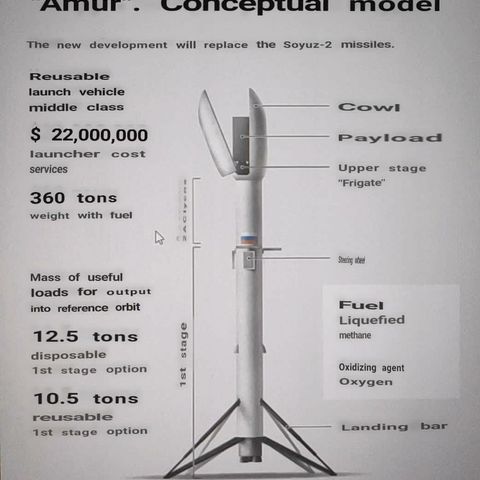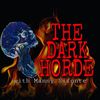UFO Buster Radio News – 420: Russia Amur Gimmick Infringement, Moonwalkers, SpaceX SN-8 to V 1.0, and Rogue Earth-Mass Planet or Nibiru

Descarga y escucha en cualquier lugar
Descarga tus episodios favoritos y disfrútalos, ¡dondequiera que estés! Regístrate o inicia sesión ahora para acceder a la escucha sin conexión.
Capítulos
Descripción
Subscribe to the YouTube Channel here - https://www.youtube.com/channel/UCggl8-aPBDo7wXJQ43TiluA Join the Episode after party on Discord! Link: https://discord.gg/ZzJSrGP Russian space corporation unveils planned “Amur” rocket—and it looks familiar Musk: “It’s a...
mostra másJoin the Episode after party on Discord!
Link: https://discord.gg/ZzJSrGP
Russian space corporation unveils planned “Amur” rocket—and it looks familiar
Musk: “It’s a step in the right direction, but they should really aim for full reusability.”
Link: https://arstechnica.com/science/2020/10/russian-space-corporation-unveils-planned-amur-rocket-and-it-looks-familiar/
On Wednesday Russia's state space corporation, Roscosmos, unveiled plans to develop a new "Amur" rocket.
The booster will be powered by new and as yet undeveloped rocket engines that burn methane. Just as significantly, for the first time, Russia is seeking to build a reusable first stage. And Roscosmos is targeting a low price of just $22 million for a launch on Amur, which is advertised as being capable of delivering 10.5 tons to low-Earth orbit.
"We would like our rocket to be reliable, like a Kalashnikov assault rifle," said Alexander Bloshenko, executive director of Roscosmos for Advanced Programs and Science.
What is perhaps most striking about the Amur rocket design, however, is how much it resembles a smaller version of SpaceX's Falcon 9 rocket, which can lift about twice as much payload into orbit.
Moreover, even under Roscosmos' most optimistic timeframe, Amur would not be ready to fly until 2026.
Commenting on the Amur rocket on Twitter, SpaceX founder Elon Musk said, "It’s a step in the right direction, but they should really aim for full reusability by 2026. Larger rocket would also make sense for literal economies of scale. Goal should be to minimize cost per useful ton to orbit or it will at best serve a niche market."
NASA is testing the first of its new moonwalking spacesuits
Link: https://www.space.com/nasa-artemis-spacesuits-tech-underwater-photos
What will astronauts wear on the big day when they step foot on the moon as the first humans to do so in more than 50 years?
A brand-new spacesuit, of course, and one that NASA is hard at work developing. Called the Exploration Extravehicular Mobility Unit (xEMU), the spacesuit needs to protect astronauts from the harsh environment of the lunar surface, which is quite different from that astronauts have been exploring for the past few decades in low Earth orbit.
"The xEMU represents the first new spacesuit that NASA has developed in over 40 years," George Nield, who was previously the associate administrator for commercial space transportation at the Federal Aviation Administration, said on Oct. 1 during a webcast quarterly meeting of NASA's Aerospace Safety Advisory Panel, on which he now sits.. "So far, it looks like things are pretty much on schedule."
Nield outlined the agency's plan to build five xEMU suits in the initial batch. One, which NASA engineers will subject to design verification tests, is almost done and should be completed in December, he said. A second will be built for qualification testing and a third will be tested in orbit on the International Space Station. The final two suits of the set will walk on the moon in 2024 on a mission NASA is calling Artemis 3.
SpaceX’s Mars-Colonizing Starship Is Ready for Its First Huge Test
Link: https://observer.com/2020/10/spacex-starship-prototype-sn8-prepares-test-mars-colonizing/
The newest prototype of SpaceX’s moon-landing and Mars-colonizing spaceship, Starship, is expected to undergo its first high-altitude test flight this month. The giant spacecraft’s development site in Boca Chica, Texas has been extremely busy over the past few weeks with preparation for the big test.
Starship is SpaceX’s ultimate rocket designed for future interplanetary trips. Two previous prototypes, Starship SN5 and SN6, successfully performed 500-foot-high (150 meters) hops in a test flight last month. The latest prototype, SN8, aims to fly up to 50,000 feet (9.3 mile) above sea level, paving the way for SpaceX’s next target to reach Earth’s orbit.
On Friday, Elon Musk said on Twitter that an orbit-reaching prototype called “V1.0” would be revealed before the end of October. “Starship update coming in about 3 weeks,” he tweeted. “The design has coalesced. What is presented will actually be what flies to orbit as V1.0 with almost no changes.”
The giant cylinder-shaped rocket, weighing over 150,000 pounds, was rolled to the launch pad in Boca Chica SN8 was held on-site for four days before being lifted onto one of the pad’s test stands. Technicians then began the process of installing the mount’s temporary hydraulic ram (used to simulate engine thrust) to the rocket’s thrust puck.
SN8 will be the first Starship prototype to be fired up by three Raptor engines at the same time, which would more than 600 metric tons (1.3 million pound-force) of thrust.
Astronomers Say They've Detected a Rogue Earth-Mass Planet Drifting in The Milky Way
Link: https://www.sciencealert.com/rogue-planet-the-size-of-earth-found-drifting-through-the-dark-on-its-own
If a solar system is a family, then some planets leave home early. Whether they want to or not. Once they've left the gravitational embrace of their family, they're pretty much destined to drift through interstellar space forever, unbound to any star.
Astronomers like to call these drifters "rogue planets," and they're getting better at finding them. A team of astronomers have found one of these drifting rogues that's about the same mass as Mars or Earth.
Finding something in deep space that emits no light of its own is extremely challenging. But two organizations are doing just that. They're the OGLE (Optical Gravitational Lensing Experiment) collaboration and the KMTN (Korean Microlensing Telescope Network) collaboration.
Now, a team of scientists from both groups have announced the discovery of a low-mass rogue planet. There are no stars near it, and its distance from Earth is unconfirmed.
The team says it proves that the microlensing technique is effective at finding Earth-mass planets that are free-floating in space.
Astronomers think that in the early days of a solar system, some low-mass planets will be ejected from the star's gravitational grip.
Finding these tiny bodies in the vast darkness of space requires an innovative approach: gravitational lensing.
Gravitational lensing requires two things: A distant light source, usually a star, and a closer object with enough mass to act as a lens, and to bend the light from the light source.
Nibiru - The Nibiru cataclysm is a supposed disastrous encounter between the Earth and a large planetary object (either a collision or a near-miss) that certain groups believed would take place in the early 21st century. Believers in this doomsday event usually refer to this object as Nibiru or Planet X. The idea was first put forward in 1995 by Nancy Lieder,[2][3] founder of the website ZetaTalk. Lieder describes herself as a contactee with the ability to receive messages from extraterrestrials from the Zeta Reticuli star system through an implant in her brain. She states that she was chosen to warn mankind that the object would sweep through the inner Solar System in May 2003 (though that date was later postponed) causing Earth to undergo a physical pole shift that would destroy most of humanity.[4]
The idea that a planet-sized object will collide with or closely pass by Earth in the near future is not supported by any scientific evidence and has been rejected by astronomers and planetary scientists as pseudoscience and an Internet hoax.[5][6]
Govert Schilling (2009). The Hunt For Planet X: New Worlds and the Fate of Pluto. Copernicus Books. p. 111. ISBN 978-0-387-77804-4.
"Beyond 2012: Why the World Didn't End". NASA. 2012-12-22. Archived from the original on 2011-02-22. Retrieved 2012-11-13.
Show Stuff
Join the episode after party on Discord!
Link: https://discord.gg/ZzJSrGP
The Dark Horde Podcast: https://www.spreaker.com/show/the-dark-horde
The Dark Horde, LLC – http://www.thedarkhorde.com
Twitter @DarkHorde or https://twitter.com/HordeDark
Support the podcast and shop @ http://shopthedarkhorde.com
UBR Truth Seekers Facebook
Group: https://www.facebook.com/groups/216706068856746
UFO Buster Radio: https://www.facebook.com/UFOBusterRadio
YouTube Channel: https://www.youtube.com/channel/UCggl8-aPBDo7wXJQ43TiluA
To contact Manny: manny@ufobusterradio.com, or on Twitter @ufobusterradio
Call the show anytime at (972) 290-1329 and leave us a message with your point of view, UFO sighting, and ghostly experiences or join the discussion on www.ufobusterradio.com
Mail can be sent to:
UFO Buster Radio Network
PO BOX 769905
San Antonio TX 78245
For Skype Users: bosscrawler
Comentarios

Andre Ortiz
hace 4 años

Andre Ortiz
hace 4 años

The Dark Horde Network
hace 4 años

The Dark Horde Network
hace 4 años

The Dark Horde Network
hace 4 años

Andre Ortiz
hace 4 años

The Dark Horde Network
hace 4 años

GameVet02
hace 4 años

Andre Ortiz
hace 4 años

GameVet02
hace 4 años

The Dark Horde Network
hace 4 años

GameVet02
hace 4 años

Andre Ortiz
hace 4 años

The Dark Horde Network
hace 4 años

Andre Ortiz
hace 4 años

GameVet02
hace 4 años

The Dark Horde Network
hace 4 años

Andre Ortiz
hace 4 años

GameVet02
hace 4 años

The Dark Horde Network
hace 4 años

Andre Ortiz
hace 4 años

GameVet02
hace 4 años

Andre Ortiz
hace 4 años

GameVet02
hace 4 años

GameVet02
hace 4 años
Información
| Autor | The Dark Horde Network |
| Organización | The Dark Horde Network |
| Página web | - |
| Etiquetas |
Copyright 2024 - Spreaker Inc. an iHeartMedia Company
